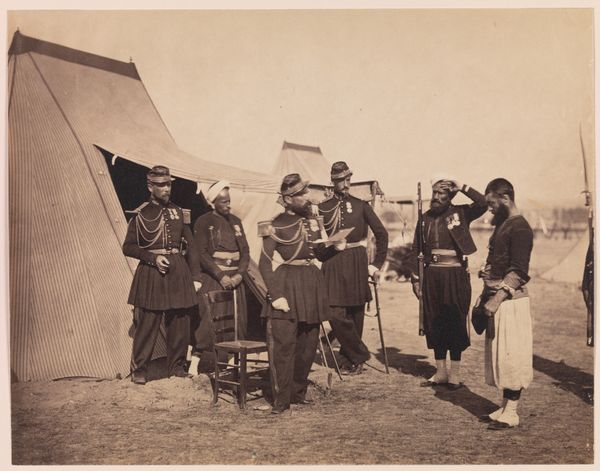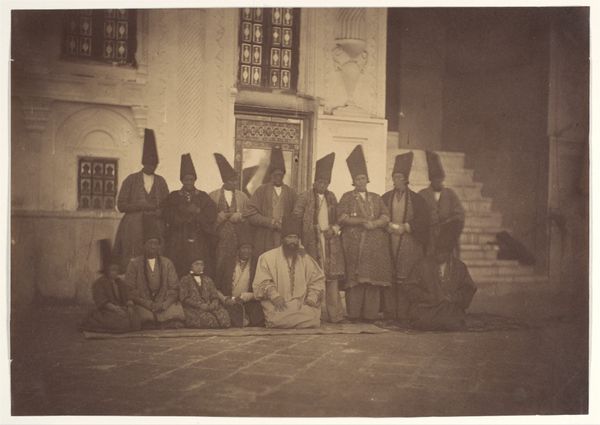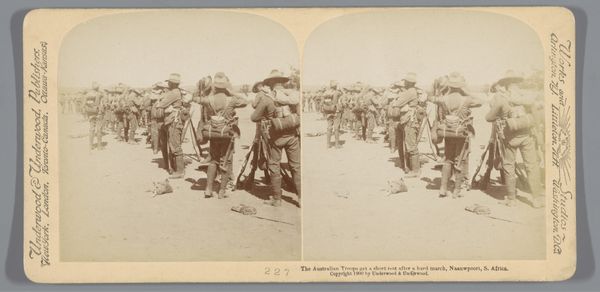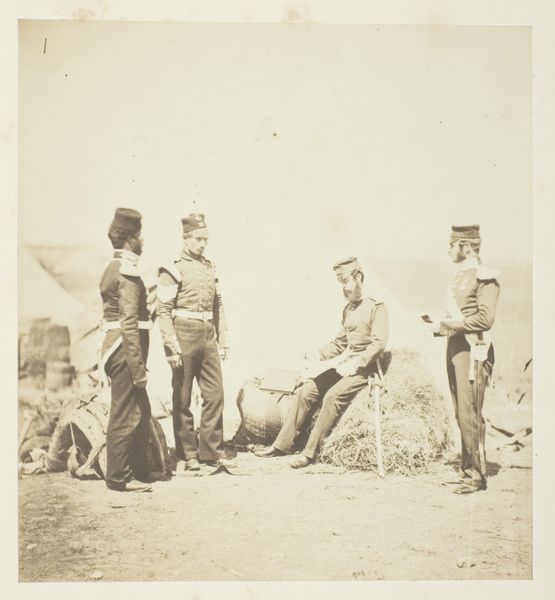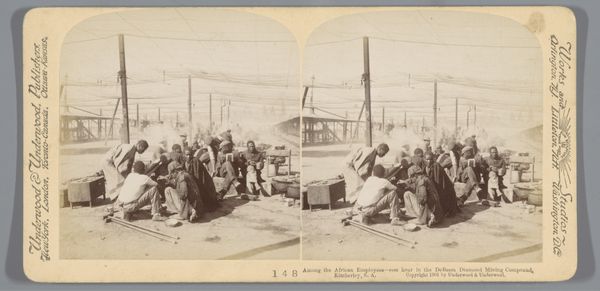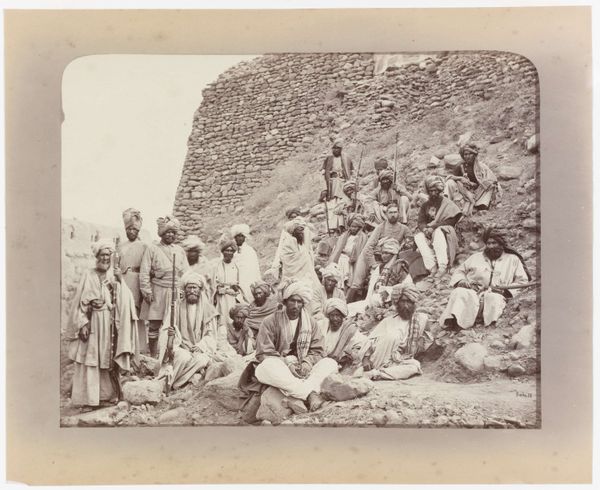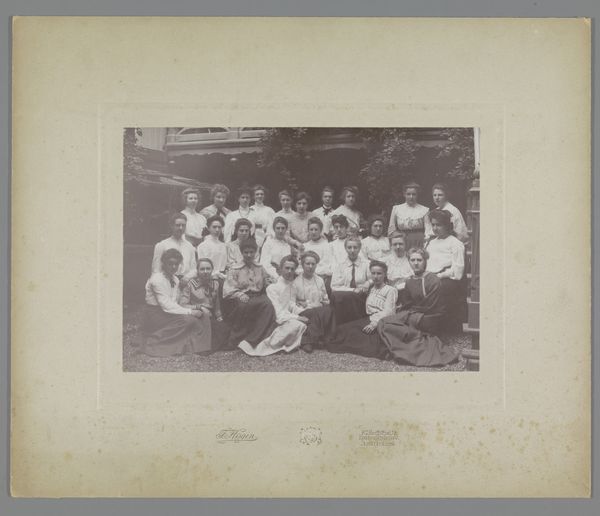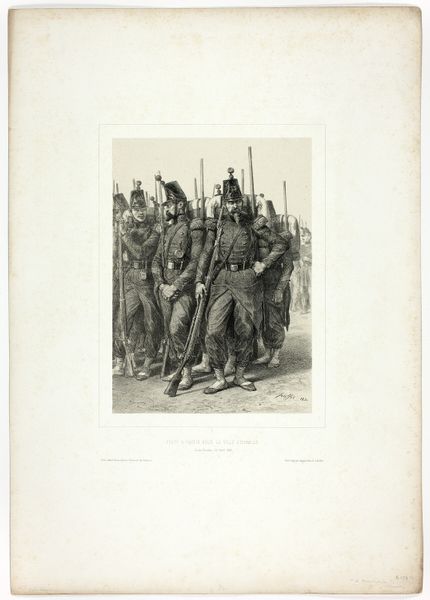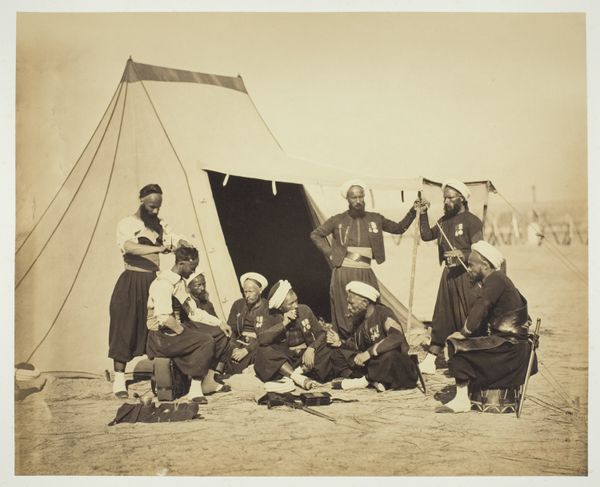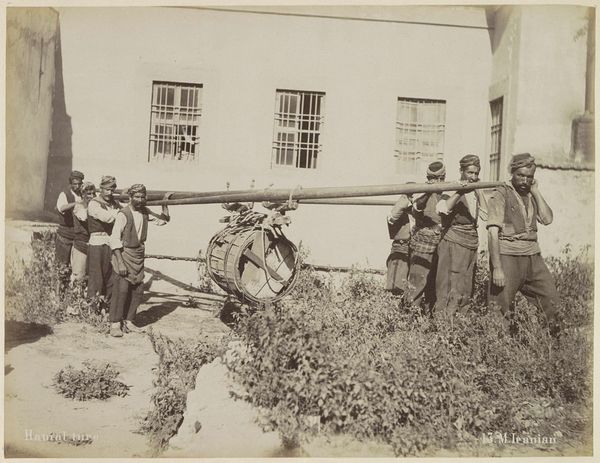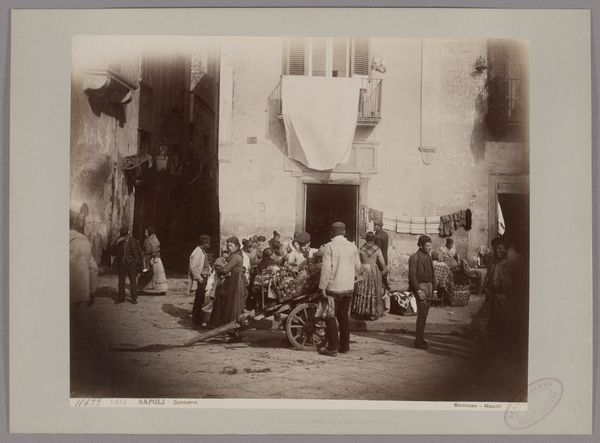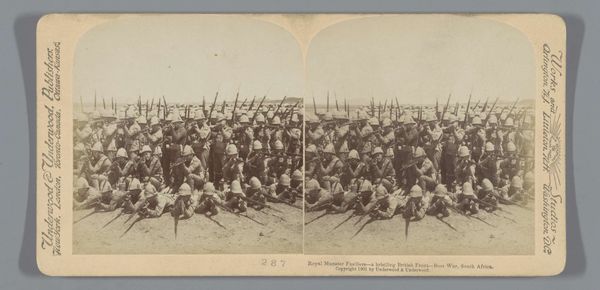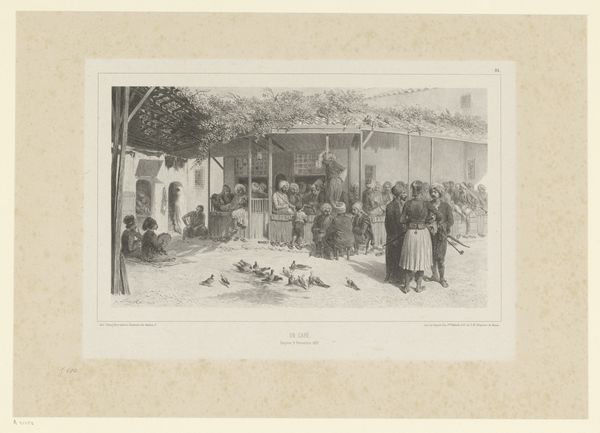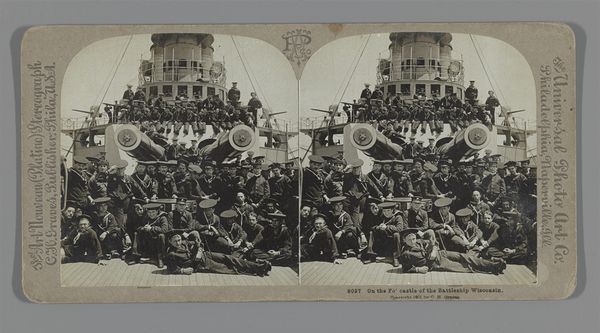
photography, gelatin-silver-print
#
portrait
#
aged paper
#
toned paper
#
yellowing background
#
photo restoration
#
ink paper printed
#
war
#
photography
#
soldier
#
group-portraits
#
gelatin-silver-print
#
men
#
history-painting
Dimensions: 5 9/16 x 7 1/2
Copyright: Public Domain
This photograph captures the Duryea Zouaves, around the 1860s, attributed to Stacy. The most striking motif is the fez, worn by many soldiers, derived from North African military dress. This headgear connects to a broader fascination with Orientalism in 19th-century military fashion, suggesting a romanticized vision of foreign cultures. We see echoes of this in earlier Turkish and Hungarian military uniforms, where exotic dress symbolized bravery and otherness. In the context of the American Civil War, the fez could perhaps signify a departure from traditional military norms, an attempt to create a unique, almost theatrical, identity for the Zouaves. The act of gathering for a meal carries its own weight. Food is a universal symbol of community and sustenance. This seemingly mundane scene of soldiers dining becomes an expression of camaraderie. It reveals a deeper, subconscious need for connection amidst the chaos of war. These symbolic layers engage us, reminding us of the complex interplay between culture, identity, and the human condition.
Comments
No comments
Be the first to comment and join the conversation on the ultimate creative platform.
